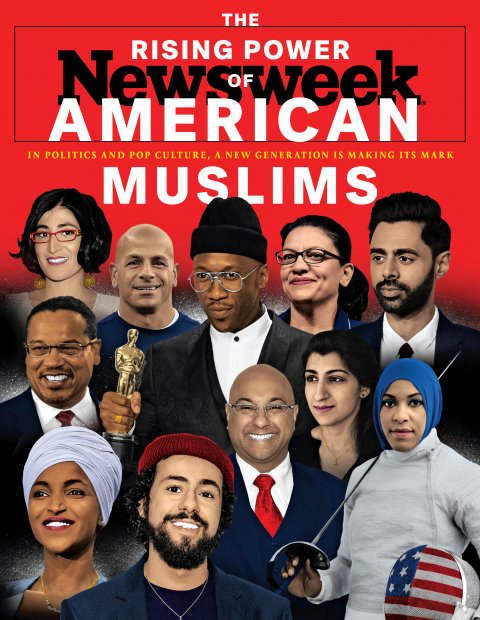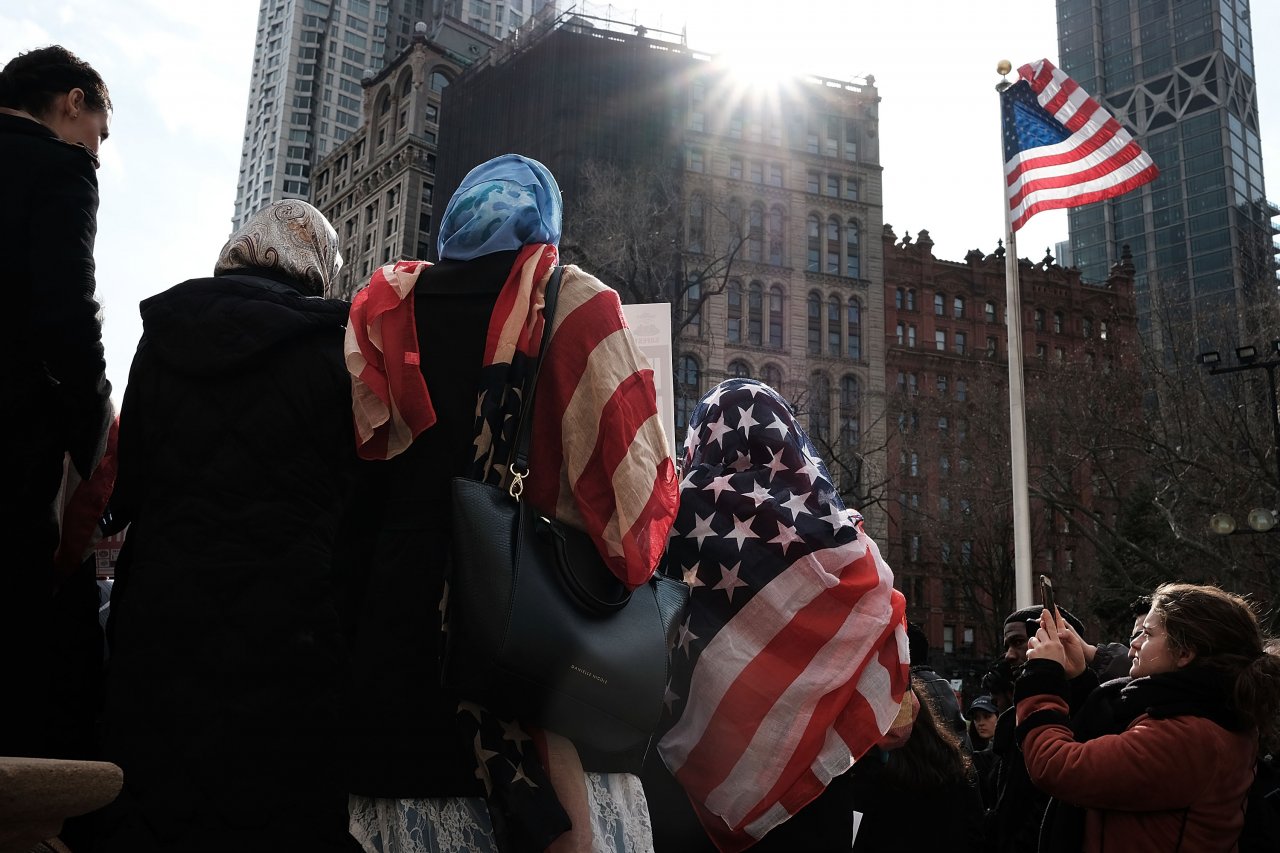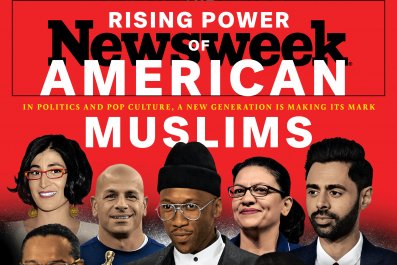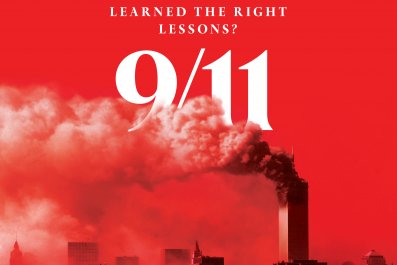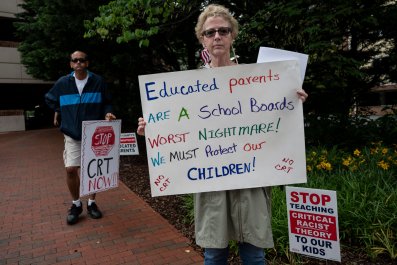Like most Americans old enough to remember, I know exactly where I was and what I was doing on September 11, 2001 when the first hijacked plane hit the World Trade Center in New York City. I was showering when I heard my husband yelling for me. Dripping wet and wrapped in a towel, I watched in shock, along with tens of millions of others, as the Twin Towers fell, killing thousands of people inside.
Emotions from that day feel so much closer than two decades ago.
My stomach turned in revulsion. My body tightened with fear for my relatives who worked there. Dread settled like a heavy rock on my chest. Like other Americans, I wondered, who was attacking us. But as a Muslim, I had other questions, too: Did the attackers claim to be Muslims? And, if so, what would happen to the rest of us?
I quickly got dressed and headed to the St. Louis Post-Dispatch, where I worked as an education reporter. I talked to stunned school officials and students while still trying to process what was happening.
That evening, I checked in with my family in Texas. My brother, then in middle school, had been in class when his teacher broke the news. He became nervous and, in the teacher's eyes at least, asked too many questions. "Is this World War III? Did they bomb downtown? Are they going to bomb our town next?" The teacher told him to shut up and leave her classroom, that she couldn't bear to look at his face.
My mother's co-workers at the department store where she had worked for years suddenly refused to speak to her. Cops escorted my hijab-wearing cousin off her college campus because it was no longer deemed safe for her to be there.
In the immediate aftermath of that day's horror, my grief and anger as an American was so compounded with my fear and anxiety as a Muslim that it compelled me to do something unthinkable for me: I poured my heart out to the readers of the Sunday paper.
Back then, it was unusual for a news reporter to pen a personal response to a national tragedy. This was long before social media made us all performative, confessional animals. I needed my neighbors in the Midwest to know that while Muslim Americans shared their grief and anger, we also feared whether our country would turn on us.
I ended that column with the questions my college-aged sister had asked me: "Will the government come after us like they did with the Japanese? Will other Americans stand up for us?"
I told my readers the same thing I told her: I don't know.
I wasn't sure what to expect, but dozens and dozens of readers responded to her question with expressions of support: Yes, we will stand up for you, you and your family are one of us, they said, in one way or another, in message after message. There were just two negative, Islamophobic emails in the bunch.
Such an overwhelmingly positive response seems inconceivable now, given how polarized our discourse is now and how normalized hate speech has become—an irony, when you consider how heightened anti-Muslim sentiment was at the time.
Key moments after 9/11 also feel unimaginable now. Back then, a Republican president, George W. Bush, visited the Islamic Center in Washington D.C. days after the attack to tell the American people that the attacks violated the tenets of Islam—"Islam is peace," he famously said—and to defend Muslims as equal citizens worthy of respect and protection. Our last Republican president, by contrast, touted a "Muslim ban" across the country. Even my state, Missouri, now bright partisan red, was a swing state back in 2001, where Democrats sometimes voted for Republicans and vice versa.
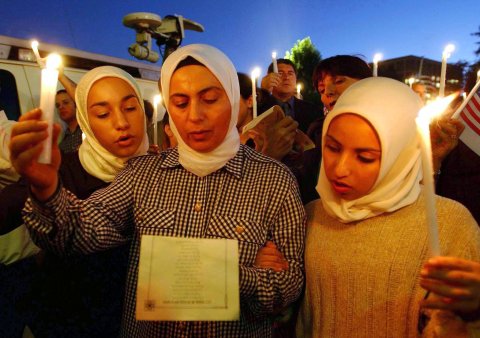
It was against this backdrop that I felt moved to share my vulnerability with readers who may never have met a Muslim before.
Their responses reassured and comforted me, but the expressions of support didn't always—or even mostly—translate into action on a national scale. Instead, the Muslim community bore the brunt of the fallout of 9/11 for years. The government targeted Muslim communities with surveillance, questioning and confinement. It seemed law enforcement and the media used the label of "terrorism" for heinous crimes only if the perpetrator was Muslim. The number of anti-Muslim hate crime incidents reported to the FBI rose from 28 in 2000 to 481 in 2001— and those are just the official numbers. Countless incidents are never reported to the FBI.
Yet, in those ensuing years, creative work by Muslims also bubbled up in the country. A trio of Muslim comedians—Preacher Moss, Azhar Usman and Azeem Muhammad—launched the "Allah Made Me Funny" comedy tour in 2003. Writer Laila Lalami's debut novel, Hope and Other Dangerous Pursuits, was published in 2005. Actor Aasif Mandvi began appearing on The Daily Show in 2006. G. Willow Wilson published her first graphic novel, Cairo, in 2007.
People who had lived as Muslims in America prior to 9/11 became American Muslims, more engaged in its civic, cultural and political institutions. Muslims creatives were reclaiming the narrative and telling our own stories instead of responding to the false dichotomy of victim or villain told about us.
I was among them. Seven years after the attacks, I began lobbying my editors for a features column, a departure from a decade of straight news reporting. I had become a mother with two small children. I was trying to make sense of the confusion and isolation that parenting provokes. My first column in 2008 described a bleak winter day when I was sleep-deprived and frustrated and feeling slightly suffocated by the tight bonds of motherhood.
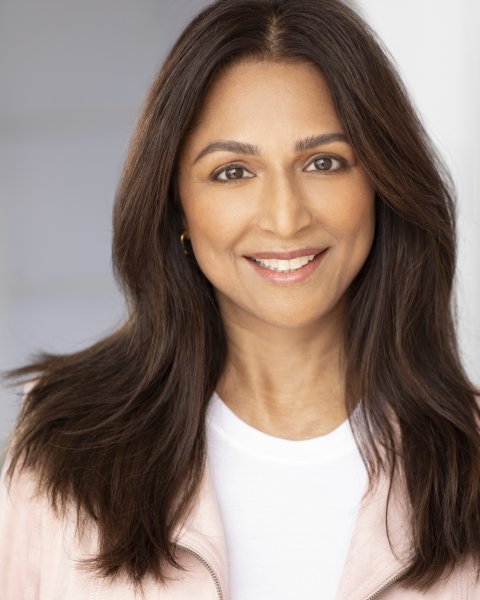
Again, readers in the heartland responded with overwhelming support and commiseration. I wasn't making any overtly political arguments. As readers got to know me, they appreciated the commonalities in our parenting experiences despite our differences. I wasn't trying to be an ambassador or spokeswoman for my faith or an ethnic community. I was sharing my observations and struggles as a suburban, middle class American mom who happened to be Muslim and of Pakistani descent.
An older, childless white man who lives in a conservative exurban county wrote to say I was the only Muslim he knew besides the attackers on 9/11. He said he had changed his perspective on Muslims in America after reading my column for years. We weren't just a faceless enemy to him anymore. He saw me as a person, my humanity very real to him.
We've stayed in touch for more than a decade.
Over time more Americans have become like that reader, increasingly comfortable with the idea and presence of Muslims—as neighbors and even family members. Yet simultaneously, the conservative right turned Islam into an effective political weapon and used it to bludgeon Muslims who have sought greater representation and political power.
These opposing forces once again became evident in the correspondence I got from readers, The tone and tenor changed notably in the summer of 2016 as the political rhetoric of the presidential campaign came to a boiling point. Public writers have always had our share of angry critics. But the criticism I received turned increasingly vitriolic, with a deep undercurrent of anger. People who disagreed with what I'd written weren't merely looking to dissent but to silence me.
Increasingly, pushback was laced with profanity, racial slurs and calls to go back to where I came from. Anonymous writers called me a "raghead c*nt" and others told me to "get out of America, you towel head bigot b*tch." One reader mailed a handwritten letter after I wrote about talking to my children about the killing of Trayvon Martin, the Black teenager fatally shot by a white member of a neighborhood watch patrol in Florida. She said she would make a point of cutting out my column photo from the paper every weekend so she could put it in the toilet and piss on it.
After the 2016 election, the heightened anxiety about personal safety I'd felt right after 9/11 returned, even stronger and lasted for years. It's not hard to understand why. During the period between 2015 and 2016, the number of assaults against Muslims rose significantly, surpassing the aftermath of 9/11, according to a Pew Research Center analysis of hate crimes statistics from the FBI. Over the following years, disinformation and conspiracies began taking hold in America at a level I'd never seen before. White rage was palpable online and eventually, on the streets.
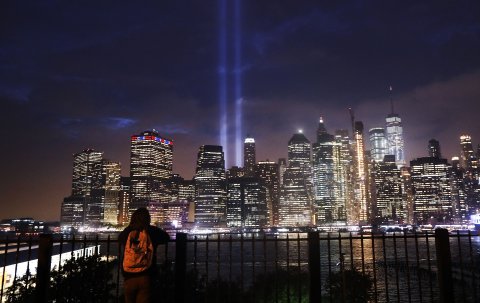
And yet during this period, Muslims in America continued to create art and cultural capital at an unprecedented level. Playwright Ayad Akhtar produced his Pultizer-winning play Disgraced. Hasan Minhaj reclaimed the title Patriot Act, launching a show that became a cultural touchpoint for a generation of American Muslims too young to know firsthand how that legislation was wielded against the Muslim community. Ramy Youssef won a Golden Globe, Mahershala Ali won two Oscars and Lena Khan is directing Hollywood films. Models, pundits and Olympic athletes came into the spotlight while wearing a hijab.
At some point, I too decided that whatever the costs of speaking out, far greater was the cost of silence. If someone was going to attack me for speaking out against white supremacists, that was a risk I was willing to take. I couldn't back down from writing about controversial issues that I knew would provoke an angry backlash, even when it felt reader abuse could possibly escalate to violence.
What I've observed and experienced over the past 20 years, as a columnist and as a Muslim, perhaps boils down to this: As the politics of exclusion grow more strident, parts of the culture embrace inclusivity. Each force is a reaction to the other.
Certainly this has happened in my own relationship with readers. Even as the negative emails ramped up in intensity and bile, I still have far more readers who send words of kindness and encouragement than hatred. Many reveal their own secrets and most vulnerable stories.
My goal when I began writing a column was to give a voice to parents struggling to raise kids in this digital, social media-saturated age. I hope I've done that, but along the way something else important happened: I found my own voice, too.
My youngest sister, who was in college when I wrote my first personal story in the aftermath of 9/11, decided to attend law school after she graduated. She eventually ran for state judge in the 113th District in Houston and was elected in 2018 as part of the record-setting number of Muslims who won public office that year.
With the benefit of two decades of hindsight and the insights I've gained from my interaction with readers over the years, I realize I could have given her a better answer when she turned to me as a frightened college student in 2001. I could have reassured her: Yes, there will be other Americans who will stand up for us.
More importantly, we will learn to stand up for ourselves.
Aisha Sultan is a syndicated columnist based at the St. Louis Post-Dispatch. Read her first column, written in the days immediately after 9/11, here.
Correction 09/02/2021, 3:36 p.m. ET: The spelling of Trayvon Martin's name was corrected
